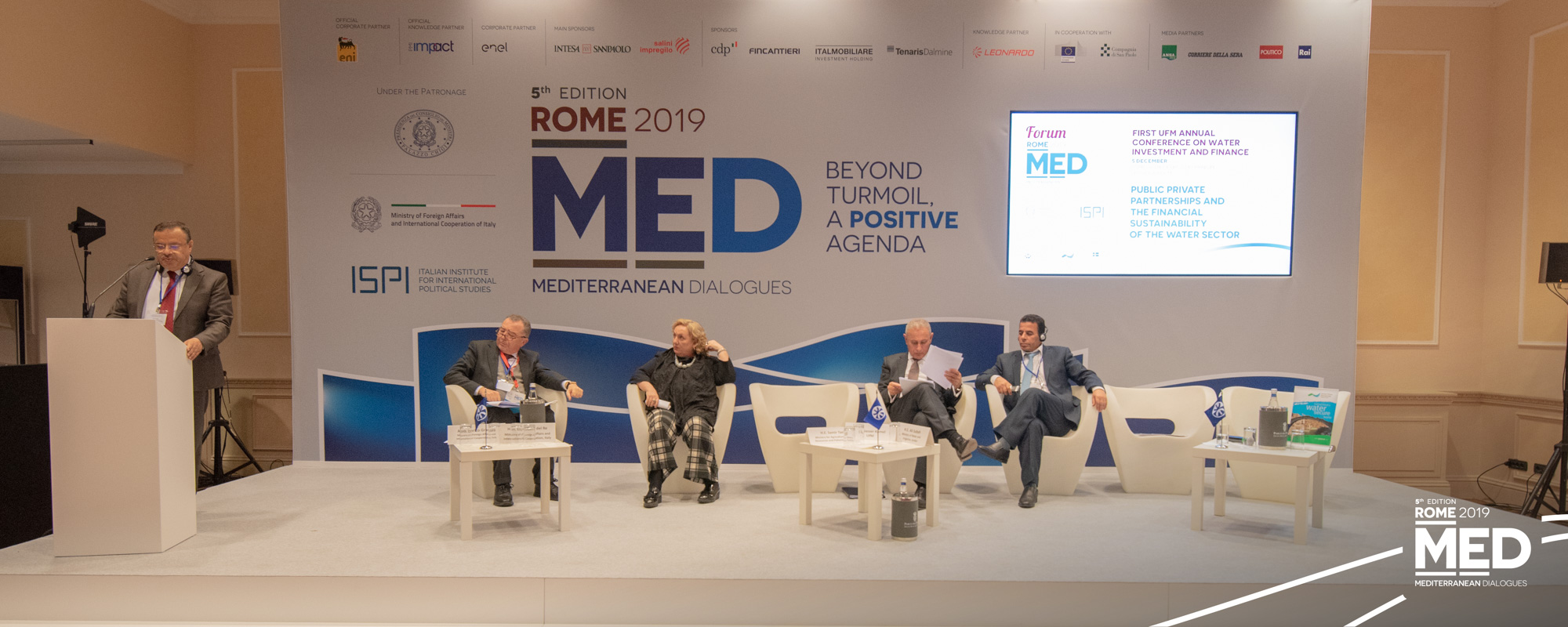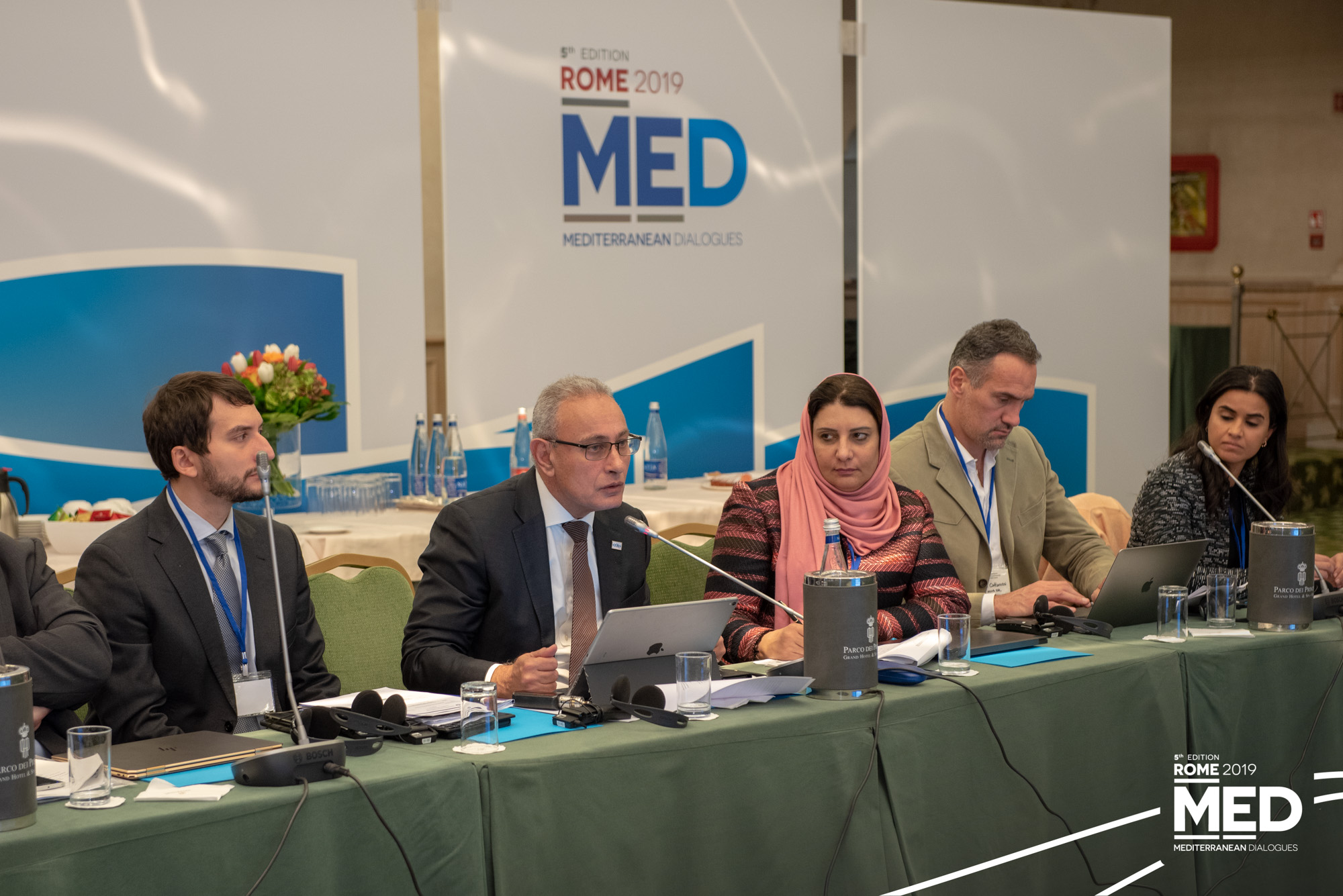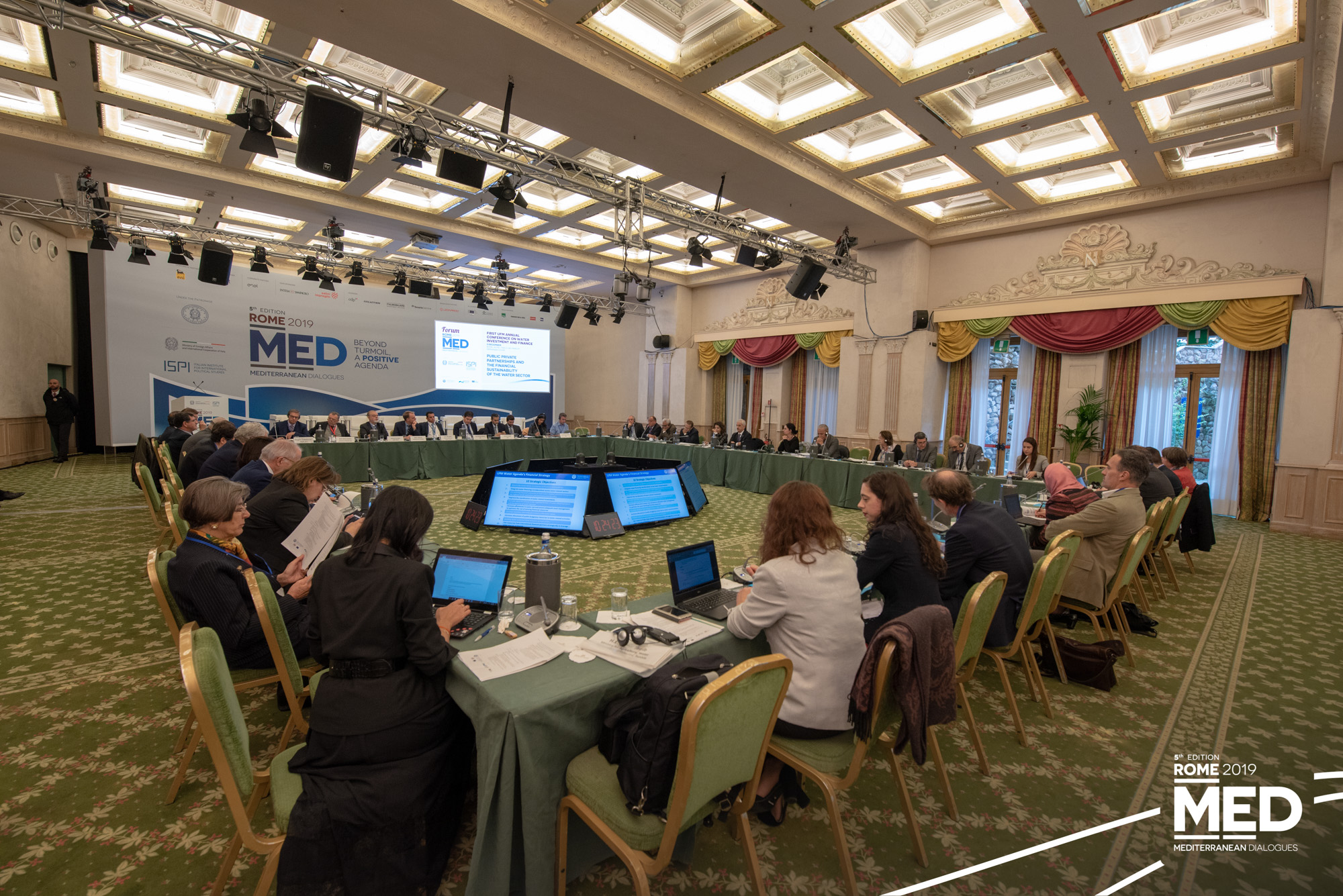Ensuring the financial sustainability of the water sector is of paramount importance to support socio-economic growth and achieve the Sustainable Development Goals. However, there is a significant funding gap for the water sector in the Mediterranean region, and thus far not enough attention has been being paid in many Mediterranean countries to engaging private sector investors.
The first Union for the Mediterranean (UfM) Annual Conference on Water Investment and Financing (ACWIF) delved into this issue and debated the challenges and the prospects for Public-Private-Partnerships and the Financial Sustainability of the Water Sector.
This first ACWIF was organised on 5 December 2019, in Rome, Italy, by the UfM Secretariat in partnership with the Italian Institute for International Political Studies (ISPI) and the Global Water Partnership – Mediterranean (GWP-Med) including through the ‘Making Water Cooperation Happen in the Mediterranean’ project (aka the Water Matchmaker) supported by the Swedish International Development Cooperation Agency (Sida).
The Conference included both a technical and a high-level segment that was co-chaired by the UfM Secretary General Amb. Nasser Kamel and Italian Vice Minister for Foreign Affairs and International Cooperation Hon. Emanuela Del Re, and brought together representatives of stakeholders of the Mediterranean Water Sector – ministries in charge of water and their partners, but also ministries of finance and economic development, ministries of foreign affairs, sectoral ministries, sub-national governments, private sector representatives (water service providers, water users, financial sector,…) and civil society representatives.

The Conference:
- stressed that innovative approaches for financing water are urgently needed, including through private sector and banking sector engagement and utilising blended financing modalities. If the response is not immediate, financing is running the danger of becoming the Achillean heal of meeting the SDGs;
- aimed at giving a boost to this effort, by bringing together knowledgeable and capable actors: competent Ministries from countries across the Mediterranean, assisted by the political anchorage of the main Euro-Med political body (i.e. the UfM) in partnership with the Italian MoFA and ISPI and in the framework of the Mediterranean Dialogue series;
- ensured wide and high-level participation, making a strong case for the imperative to work together, in synergy, with gender and youth engagement demonstrating that the whole is stronger than the individual parts.
At a time when there is reassurance from all sides that money is available, it is important to know the capabilities of all partners to determine the suitable way to move forth. The added value and contribution of the UfM Water Agenda and the Financial Strategy in particular are important to take stock of, in the endeavour towards securing sustainable water financing.
The outcomes of the first UfM ACWIF were transmitted by H.E. Nasser Kamel, Secretary General of the UfM, to the Mediterranean Dialogue on 6th December 2019 and to the UfM Senior Officials’ Meeting of December 2019.

The UfM Annual Conference on Water Investment and Financing is a key component of the implementation plan for achieving the objectives of the UfM Financial Strategy for Water, as mandated by the UfM Ministers of Water in April 2017 and endorsed by the UfM Senior Officials’ Meeting in December 2018.
The UfM Annual Conferences on Water Investment and Finance are a series of high-level regional conferences on water investment and finance proposed in the UfM Financial Strategy for Water should take place once a year around the month of November. They aim to: a) to raise the profile of the water finance and investment issues on the international political agenda and within the finance community; b) to disseminate and discuss evidence-based knowledge on how to overcome the barriers to investment, pushing the boundaries of traditional thinking about financing water-related investments; and c) to promote impactful ways of financing water-related investments.
